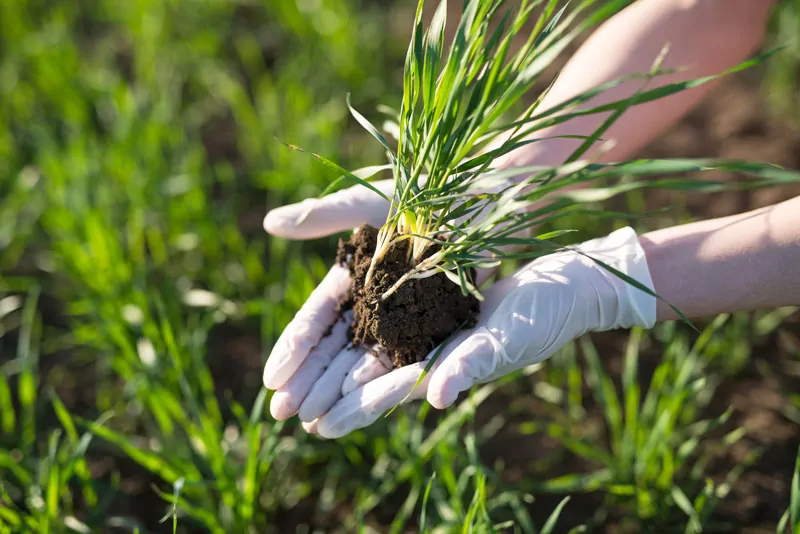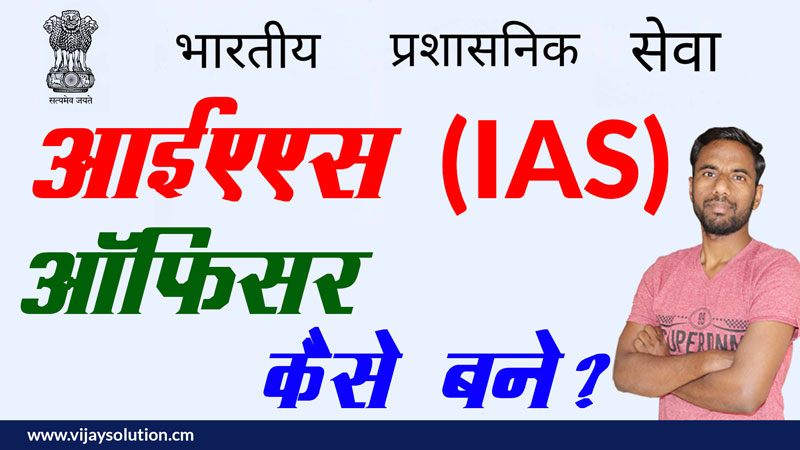Soil Science Courses: Every year on 5 December, the United Nations organizes World Soil Day to emphasize the importance of healthy soils. The survival of our planet depends on the invaluable relationship between soil and water, which is also the foundation of our agricultural system. If you are interested in Soil Science Courses, then by choosing it as your career you can contribute to both the environment and agriculture sector.
Soil Science Courses are offered in various universities and institutes. This science focuses on the origin, classification, geochemical and physical properties of soils, soil management and improvement, and environmental impacts of soils. Fulfill your love for soil by making a career in Soil Science Courses. More than 95% of our food comes from two basic resources: soil and water. However, increasing industrialization and resulting pollution and climate change have negatively impacted soil health. Soil is a unique mixture of minerals, dead and living organisms (organic material), air, and water. These four elements work together to perform amazing processes, making soil one of the most active and important natural resources on our planet.

People use soil in a variety of ways. Where an engineer views soil as a building material for infrastructure, a diplomat may view it as a nation’s territorial asset. Soil scientists view soil as ‘the surface mineral or organic layer of the Earth that has undergone physical, biological, and chemical weathering.’ By studying Soil Science Courses, you can build a strong career as a soil scientist.
Soil Science Courses is a science related to soil conservation, which includes the study of methods of controlling soil erosion, removing soil defects, increasing soil fertility, correct use of manures and fertilizers, proper crop rotation, and forestry. Is. Soil Science Courses scientists and experts are doing important work to conserve agricultural land around the world.
Pathfinder for study in Soil Science Courses
If you are interested in studying Soil Science Courses, then after 12th you can take admission in B.Sc (Soil Science/Agriculture) course. Additionally, students who have earned degrees in agronomy, agricultural chemistry, agricultural extension, agricultural economics, agricultural botany, forestry, or agricultural engineering can also pursue a master’s degree in Soil Science Courses. After this, they can also pursue their career in the field of PhD and research. In this journey of Soil Science Courses, you will gain knowledge as well as practical experience, which is important for your success in this field.
Soil Science Courses Course Structure:
- Entry Qualification: Degree course in Soil Science generally requires 12th pass with science subjects. Some courses may require a bachelor’s degree.
- Degrees and courses: This may be available at BSc, MSc, or PhD level. The curriculum includes topics on fundamentals of Soil Science Courses, soil fertilization, soil pollution, soil conservation and management.
- Lab and Field Work: It also has an important component of lab and field work, where students analyze soil samples.

Leading Institutes for Study in Soil Science Courses
- Indian Council of Agricultural Research (ICAR): It is a premier institution for agricultural research and education in India, providing research and education on various aspects of agricultural science.
- Indian Institute of Soil Science, Bhopal: This institute is a leader in soil-related research and education, providing expertise on various aspects of soil science.
- Himachal Pradesh Agricultural University, Palampur: This university is known for higher education and research in agriculture and allied sciences, such as soil science.
- Indian Institute of Soil and Water Conservation, Dehradun: This institute provides research and education in the field of soil and water conservation.
- University of Calcutta, Kolkata: This prestigious university offers opportunities for higher education in various science branches, including soil science.
These institutes provide high level education and research in soil science and are considered ideal institutes for students wishing to pursue a career in this field.
Also Read… Jake Paul net worth : Age Girlfriend & Record
Career opportunities to advance in Soil Science:
After studying Soil Science, you can choose from a variety of exciting and important career options.
- Soil Scientist: Researches and analyzes the properties, usefulness and conservation of soil.
- Soil Conservationist: Develop techniques and policies to prevent soil erosion and degradation.
- Analyst or Soil Surveyor: Evaluating the fertility and usefulness of land by analyzing soil samples.
- Development Consultant: Advising on land utilization and development.
- Ecologist, Hydrologist, Environmental Scientist: Contributing to environmental protection and resource management.
- Soil Conservation Technician, Soil Laboratory Technician: Conducting testing and research in the lab.
Apart from this, you will also have opportunities to work in areas like Soil and Fertilizer Testing Laboratory, Soil Productivity, Agriculture. If you are interested in the academic field, the option of pursuing higher education and teaching in colleges and universities is also available. Thus, Soil Science Courses is a broad and diverse field full of career opportunities.

Career Options:
- Research: Degree holders in soil science can work as researchers in research institutes and universities.
- Agricultural Industry: This degree is also used in agricultural advisory, fertilizer development, and farm management positions.
- Environmental Protection: Soil science experts are also in demand in soil conservation and rehabilitation projects.
- Government Services: Soil scientists are also needed in government departments, such as the Agriculture Department, the Environment Department, etc.
Future prospects:
The field of Soil Science Courses is constantly evolving, and it emphasizes important topics such as sustainable agriculture, environmental protection, and resource management. With innovation and technological advancement in this field, career opportunities in Soil Science Courses are increasing further.
What is World Soil Day and why is it celebrated?
World Soil Day, celebrated on December 5th each year, is designated by the United Nations to focus on the importance of healthy soil. It emphasizes the crucial role soil plays in our planet’s existence, particularly its integral relationship with water and agriculture.
How can one start a career in Soil Science?
After completing the 12th standard, interested students can pursue a BSc in Soil Science or Agriculture. Graduates from fields like Agronomy, Agricultural Chemistry, Agricultural Extension, Agricultural Economics, Agricultural Botany, Forestry, or Agricultural Engineering can also pursue a master’s degree in Soil Science, followed by Ph.D. and research opportunities.
What are some prominent institutes for studying Soil Science in India?
Prominent institutes include the Indian Council of Agricultural Research (ICAR), Indian Institute of Soil Science in Bhopal, Himachal Pradesh Agriculture University in Palampur, Indian Institute of Soil and Water Conservation in Dehradun, and the University of Calcutta in Kolkata.
What career opportunities are available in Soil Science?
Career options include Soil Scientist, Soil Conservationist, Analyst or Soil Surveyor, Development Consultant, Ecologist, Hydrologist, Environmental Scientist, Soil Conservation Technician, and Soil Laboratory Technician. Opportunities also exist in soil and fertilizer testing laboratories, soil productivity, agriculture, and teaching in colleges and universities.
Why is Soil Science important?
Soil Science is vital as it focuses on the conservation of soil, one of the planet’s most dynamic and essential natural resources. It involves controlling soil erosion, improving land fertility, and contributing to environmental and agricultural fields.



